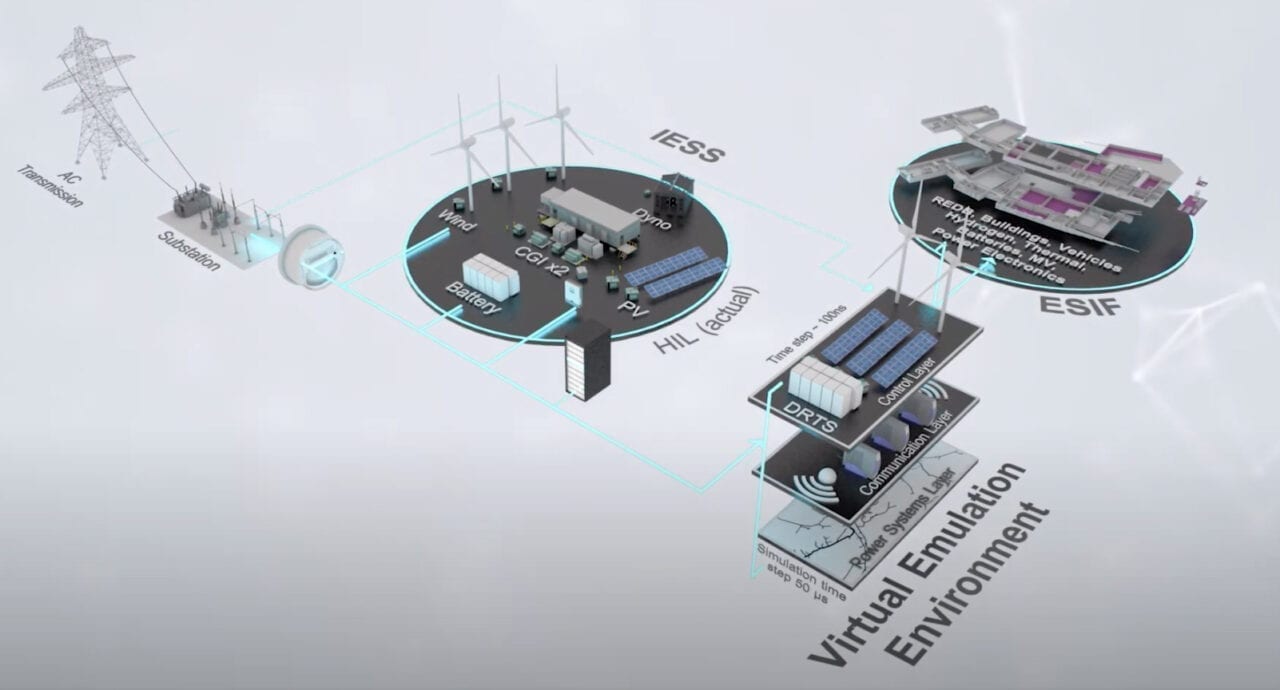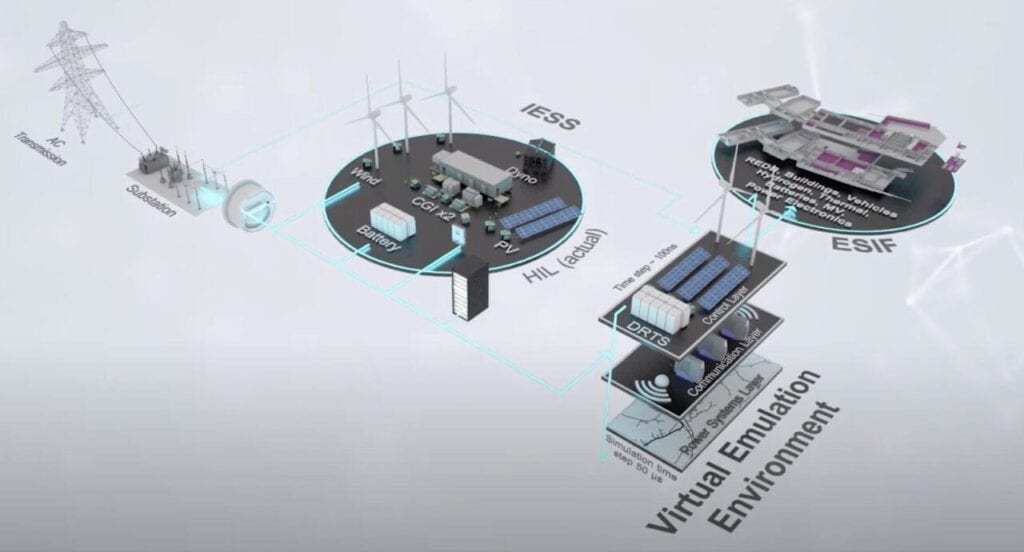DOE Rolls Out Platform to Assess Integration of Energy Systems at Scale
The post DOE Rolls Out Platform to Assess Integration of Energy Systems at Scale appeared first on POWER Magazine.

The U.S. Department of Energy (DOE) has launched the Advanced Research on Integrated Energy Systems (ARIES) platform to substantially boost national energy research experimental capability and allow the scientific community to explore fundamental challenges related to integrated energy systems at scale.
ARIES, which the National Renewable Energy Laboratory (NREL) in Golden, Colorado, developed over this past year in close collaboration with the DOE's Office of Energy Efficiency and Renewable Energy (EERE), is essentially a a research platform that can match the complexity of the modern energy system and conduct integrated research to support the development of groundbreaking new energy technologies," NREL said on Aug. 12.
The platform is designed to allow researchers to understand the impact and get the most value from millions of new devices-including electric vehicles, renewable generation, hydrogen, energy storage, and grid-interactive efficient buildings-that are being connected to the grid daily," it explained. But because it allows for research at the 20-MW level, and it is amplified by a virtual emulation environment powered by NREL's 8-petaflop supercomputer, it will also help researchers to consider opportunities and risks with the growing interdependencies between the power system and other infrastructure like natural gas, transportation, water, and telecommunications," NREL said.
ARIES will leverage existing capabilities at NREL's Energy Systems Integration Facility (ESIF), new capabilities at NREL's Flatirons Campus, and the virtual emulation environment. It will connect hardware assets at these sites with millions of digitally emulated devices," including a high-speed data link that will interconnect ARIES with other national laboratories and research partners to enable access to a greater set of research capabilities.
 ARIES will leverage existing capabilities at NREL's Energy Systems Integration Facility (ESIF), new capabilities at NREL's Flatirons Campus, and the virtual emulation environment. Source: DOE
ARIES will leverage existing capabilities at NREL's Energy Systems Integration Facility (ESIF), new capabilities at NREL's Flatirons Campus, and the virtual emulation environment. Source: DOEThe DOE said the platform was developed to provide more comprehensive and realistic assessments of the technical, operational, and financial impacts of new technologies that are poised to play a growing role in the rapidly evolving energy system. As our nation's energy system continues to undergo dramatic transformations, there is a growing need for research on how to best integrate all of our energy resources on the grid in order to provide the most reliable and affordable electricity to the American people," said Secretary of Energy Dan Brouillette at the ARIES launch on Wednesday at NREL.
Research using the platform will focus on five research areas:
Energy storage. ARIES connects multiple individual energy storage applications with a system-level perspective. The coupling of at-scale storage technologies-such as batteries + thermal, or batteries + hydrogen-will support essential steps toward validating energy system models and controls. As storage technologies graduate from the laboratory to the multimegawatt level, ARIES will help systems stay ahead of performance and interfacing challenges associated with scaling," NREL said.
Power Electronics. Because the continued growth in power electronics is creating a new paradigm" in power system operation, ARIES will seek to address the fundamental differences between power electronic-based equipment and traditional devices and the limits that must be overcome to enable higher levels of renewable generation." By integrating new power electronic technologies and system architectures, ARIES will support a future grid with resilient and flexible operation, said NREL.
Hybrid energy systems. To address the projected installation of millions of distributed energy assets, the ARIES research platform is uniquely able to reproduce the diverse time scales, physical scales, and technologies of these hybrid energy systems," NREL said. ARIES introduces a near-real-world environment with high-fidelity, physics-based, real-time models that facilitate the connection between hundreds of real hardware devices and tens of millions of simulated devices. This research area will advance the foundational science for real-time optimization and control of large-scale energy systems."
Future energy infrastructure. This research area involves transmission and delivery networks for a variety of advanced fuel types and infrastructures, which undergird the power, transportation, buildings, and industrial sectors. ARIES will enable testing on grid designs that span microgrids up to high-voltage direct current transmission grids and on management and control systems that optimally integrate power delivery for diverse fuel and technology types," it said.
Cybersecurity. Finally, but as crucially, ARIES will help close the system-level security gaps that emerge from distinct hardware and software becoming integrated," NREL said. The ARIES platform involves visualization, monitoring, and data processing for ARIES research assets and the connections between them. By creating a digital twin of clusters of research hardware, ARIES has the ability to simulate and detect attacks on communications and control systems that are still evolving, with an effect of reducing overall vulnerabilities in energy systems."
-Sonal Patel is a POWER senior associate editor (@sonalcpatel, @POWERmagazine).
The post DOE Rolls Out Platform to Assess Integration of Energy Systems at Scale appeared first on POWER Magazine.